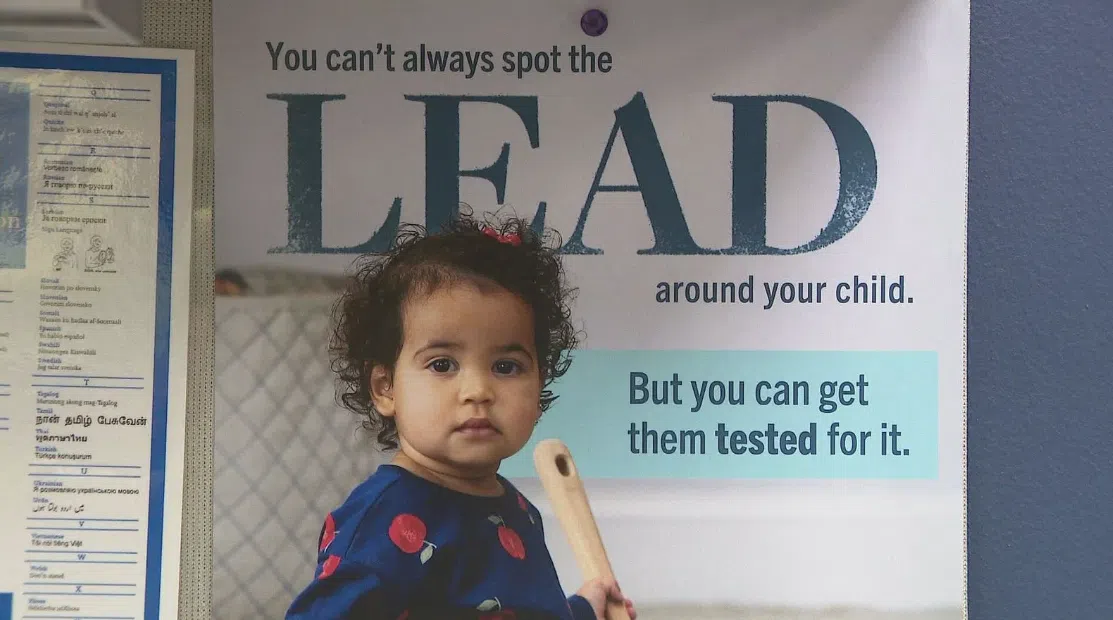
Sign to encourage testing children for lead poisoning, Oct. 21, 2025. PC: Fox 11 Online
GREEN BAY, WI (WTAQ-WLUK) — In 2022, it was estimated that 350,000 Wisconsin homes contained lead-based paint hazards.
Those can be directly linked to health issues among children.
“We do have older housing stock, so that’s primarily where we see children who are lead poisoned. They are exposed in homes that are pre-1978, where they’re more likely to have lead-based paint,” said Brian Weaver, Wisconsin’s lead policy advisor.
Last year, Wisconsin reported nearly 5,000 cases of lead poisoning in children.
“They get lead dust or lead paint on their hands or on objects that these children are playing with and then they ingest it. They either put their hands or the object in their mouth. So, these are really small children. Children between the ages of one and three,” said Weaver.
According to the state Department of Health Services, Wisconsin saw a 26% increase in children under six who were tested for lead. Last year, the department began recommending all children receive a lead blood test at ages 1 and 2.
If those tests are missed, it’s recommended children be screened between the ages of 3 and 5.
“A blood test would consist of what they call a capillary blood test, which is a finger poke. Then, if that is elevated, they confirm that blood test, that screening, with a venous blood test on the child,” said Chrystal Woller, health officer/director with the city of De Pere.
“Lead poisoning is toxic. It impacts every system in the body, so it’s really critical to make sure those children are tested,” said Weaver.
Some symptoms of lead poisoning don’t show up right away.
“Lower IQ or delay in growth and development of that child may not actually show up until six months or several years later in that child,” said Weaver.
In Wisconsin, the Lead-Safe Homes Program helps remove lead hazards from households that meet the following requirements:
- Your home was built before 1978.
- Your taxes are paid to date, or you’re enrolled in a tax payment plan.
- Children under age 19 or a pregnant woman living at or regularly visiting your home and are on or eligible for Medicaid or BadgerCare Plus.
Lead-based pipes can also release lead into your drinking water. In Green Bay, the city replaced all utility-owned lead pipes in 2020. In 2024, the EPA announced more than $83 Million for Wisconsin lead pipe replacement to advance safe drinking water.





Comments